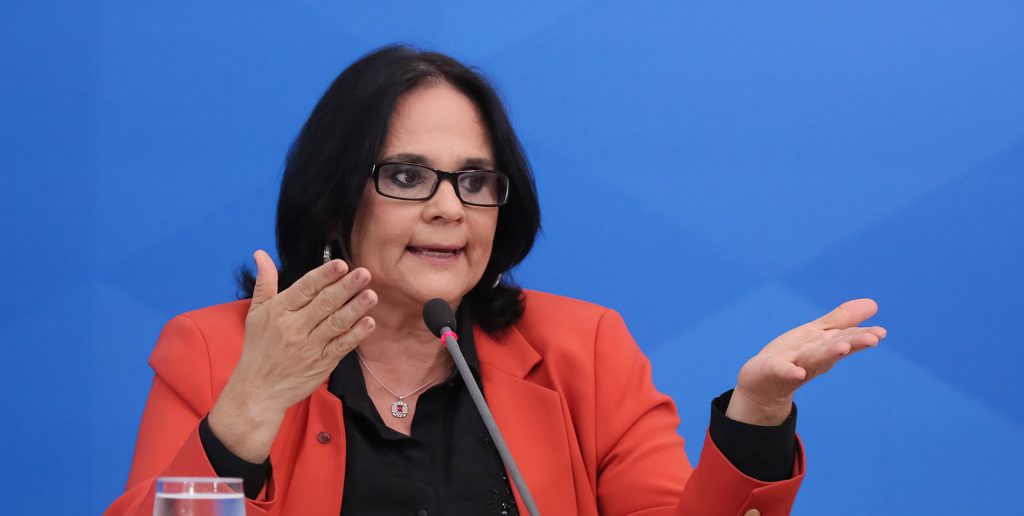Under Bolsonaro, Brazilians experienced flagrant setbacks in gender rights and policies. Flávia Biroli and Luciana Tatagiba assess the roots of these changes, which targeted participatory institutions and practices. The effects have been profound, highlighting the difficulties for Brazil's new government of turning the tide on anti-feminism
In his presidential inauguration speech in January 2019, Jair Messias Bolsonaro pledged his government would fight 'political correctness' and 'gender ideology' while defending the family and Christian values. He targeted in particular feminist politics and recent advances in gender rights.
The backlash is closely connected to the movements opposing the centre-left Workers' Party, which held power between 2002 and 2014.
Bolsonaro supporters are strategically important, and a polarising force in Brazilian politics. They are conservative, Catholic and evangelical. Their activism took shape in pre-existing or recently-created social organisations, the oldest of which were mostly connected to anti-abortion networks. More recently-established groups often advocate 'for the family' and coalesce around a broader set of issues. Before Bolsonaro came to power in 2018, these groups were influential in Brazil's legislature and its judiciary.
Of course, conservative opposition to gender existed before Bolsonaro came to power. However, there was something different in the electoral cleavages around gender and religion that emerged in 2018. Evangelical voters are more likely than non-evangelicals to vote for far-right parties. More women than men disapproved of Bolsonaro’s government, and this gender gap was reflected in voter behaviour.
There was something different in the electoral cleavages around gender and religion that emerged after Bolsonaro was elected
Once in power, Bolsonaro’s government gave leverage to anti-feminist actors. Institutional mechanisms created since 2003 to respond to feminist demands now became instruments for anti-feminist politics. Anti-feminist actors expanded their repertoires of action, taking part in contentious digital activism and street protests.
The coalition supporting Bolsonaro’s government was embedded in a milieu of morally conservative and economically neoliberal forces. The government increasingly depended on right-wing parties. These parties were not necessarily anti-feminist, but nor did they necessarily stand for human rights or policies that benefited women. Thus, a convergent coalition opposing gender equality was in charge, while feminist movements were denied the opportunity to participate in policymaking.
Religious social organisations became the government's new partners in measures to tackle violence. These organisations also influenced policy related to the reproductive and sexual health of women and young people.

An anti-abortion evangelical pastor and lawyer, Damares Alves (pictured), was appointed Minister for Women, Family and Human Rights. She named an ultraconservative Catholic, Angela Gandra, as chief of the Secretary for the Family, a significant position within the Ministry. With the aim of influencing social groups, they used a varied action repertoire, with strong mobilisation potential, to contest existing public narratives on abortion, violence, and education.
In dialogue with the work of Conny Roggeband and Andrea Kriszán, our current (as yet unpublished) research identifies the mechanisms that produced these setbacks. The government dismantled public policy, which weakened state capacity. Government officials cast doubt on the need for specific policies promoting gender equality. They even questioned the legitimacy of gender equality as a goal. The result of all this was open hostility towards abortion and sex education, and the reframing of women's interests as 'family issues'.
The anti-feminist coalition claimed to be 'defending the family' against alleged threats from feminist and LGBTQ movements, the left, the UN, and human rights NGOs
Familism proved an effective political strategy. The anti-feminist coalition claimed to be 'defending the family' against alleged threats from feminist and LGBTQ movements, the left (or 'communism'), the United Nations, and human rights NGOs. The coalition:
Our research finds that anti-feminist actors blocked intersectional approaches to policy formation that concerned the family and gender- or race-based violence. These conservative actors refused to consider racial cleavages, or racism.
The Worker’s Party, led by Luiz Inácio Lula da Silva, won the 2022 presidential elections. Feminist politics was now back on to the official agenda in Brazil. The new government explicitly pledged commitment to gender equality, along with renewed commitments to uphold social, environmental, and human rights. Lula's appointments to top posts and coalitions in Congress show that Brazil has returned to a more pluralistic government, in which legislators are free to dispute existing policy, and to advocate for feminist perspectives.
However, these changes do not mean that the game has been completely reset. Overcoming the Bolsonaro backlash against gender equality will not be easy.
First, the populist far-right (and Bolsonarismo in particular) has become an integral part of Brazilian politics. Opposition to gender equality and feminist politics has become a strategic necessity for the visibility of far-right movements and politicians. Religious conservative political activism has encouraged such opposition to expand across parties and grassroots movements.
Bolsonarismo has become integral to Brazilian politics. Religious conservative activism has expanded across political parties and grassroots movements
Second, Brazilians elected a more progressive government – but a conservative Congress. Conservative actors will likely produce setbacks in law, mostly around reproductive and sexual rights. Even if such conservatives fail to thrive, their influence means that feminist actors will waste precious time on damage limitation, rather than working to advance women's rights. Policy for women in the new government is also selective. For example, there is no mention of abortion, evidently to prevent negative publicity.
Finally, state capacity is limited. Institutional restrictions introduced in 2016 cut the social policy budget. Bolsonaro’s neoliberal attack on public employees, public services, transparency and funding has had longstanding effects, undermining governmental capacity to formulate and implement policy. Bolsonaro also targeted mechanisms for transparency, and public control over policy implementation and funds.
Those advocating for gender equality and women's rights in Brazil now face more experienced conservative activism, the expansion of conservative far-right sectors in Congress and society, and an impaired state.
No.9 in a Loop thread on Gendering democracy. Look out for the 🌈 to read more in this series